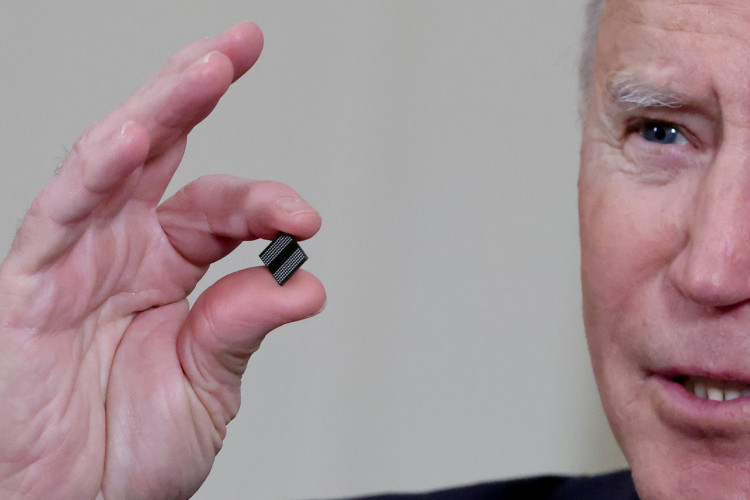In a strategic move aimed at reinforcing the United States' semiconductor manufacturing capabilities, the Biden administration announced a significant $1.5 billion grant to GlobalFoundries. This investment is part of a broader effort under the CHIPS and Science Act to enhance domestic supply chains and mitigate vulnerabilities exposed by recent global disruptions. GlobalFoundries, ranking as the third-largest contract chip manufacturer globally, plans to utilize this funding to erect a new production facility in Malta, New York, and extend its operations in Burlington, Vermont.
The initiative, poised to stimulate a $12.5 billion aggregate investment across both states, promises to generate over 10,000 jobs within the next decade, offering fair wages and essential benefits, including childcare support. "The chips that GlobalFoundries will make in these new facilities are essential chips to our national security," emphasized Commerce Secretary Gina Raimondo, highlighting the critical role these semiconductors play in both defense and civilian applications.
This funding marks the third such announcement by the government, reflecting a committed $39 billion program to rejuvenate the nation's semiconductor production landscape. "We're just getting started," Raimondo assured, indicating forthcoming awards aimed at bolstering the semiconductor sector.
The collaboration between GlobalFoundries and General Motors, formalized on February 9, underscores the strategic importance of securing a stable U.S. chip supply for the automotive industry. This partnership aims to preclude the production halts experienced during the COVID-19 pandemic due to chip shortages, ensuring resilience in the face of supply chain challenges.
The expansion in Malta is particularly notable for its focus on producing high-value chips currently not manufactured within the U.S., thereby filling a crucial gap in the domestic semiconductor ecosystem. Additionally, the Burlington facility's upgrade to manufacture next-generation gallium nitride on silicon semiconductors heralds a significant advancement in technologies critical for electric vehicles, power grids, and smartphones.
Senate Majority Leader Chuck Schumer, instrumental in crafting the CHIPS and Science Act, lauded the initiative as pivotal for U.S. economic and national security. He drew parallels between the essential nature of semiconductors and fundamental resources like food, emphasizing the strategic imperative of insulating the nation from external disruptions akin to those witnessed during the coronavirus pandemic.
Amidst a politically charged climate with the U.S. economy's health at the forefront of electoral debates, the Biden administration's investment in semiconductor manufacturing aligns with broader Democratic efforts to foster long-term economic growth through substantial infrastructural and technological investments. Schumer's remarks reflect a vision for a future-oriented America, poised to reap the benefits of these foundational investments in the coming decades, painting a picture of resilience and innovation at the heart of American industrial strategy.






